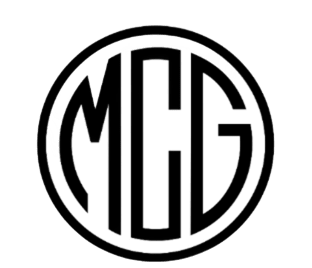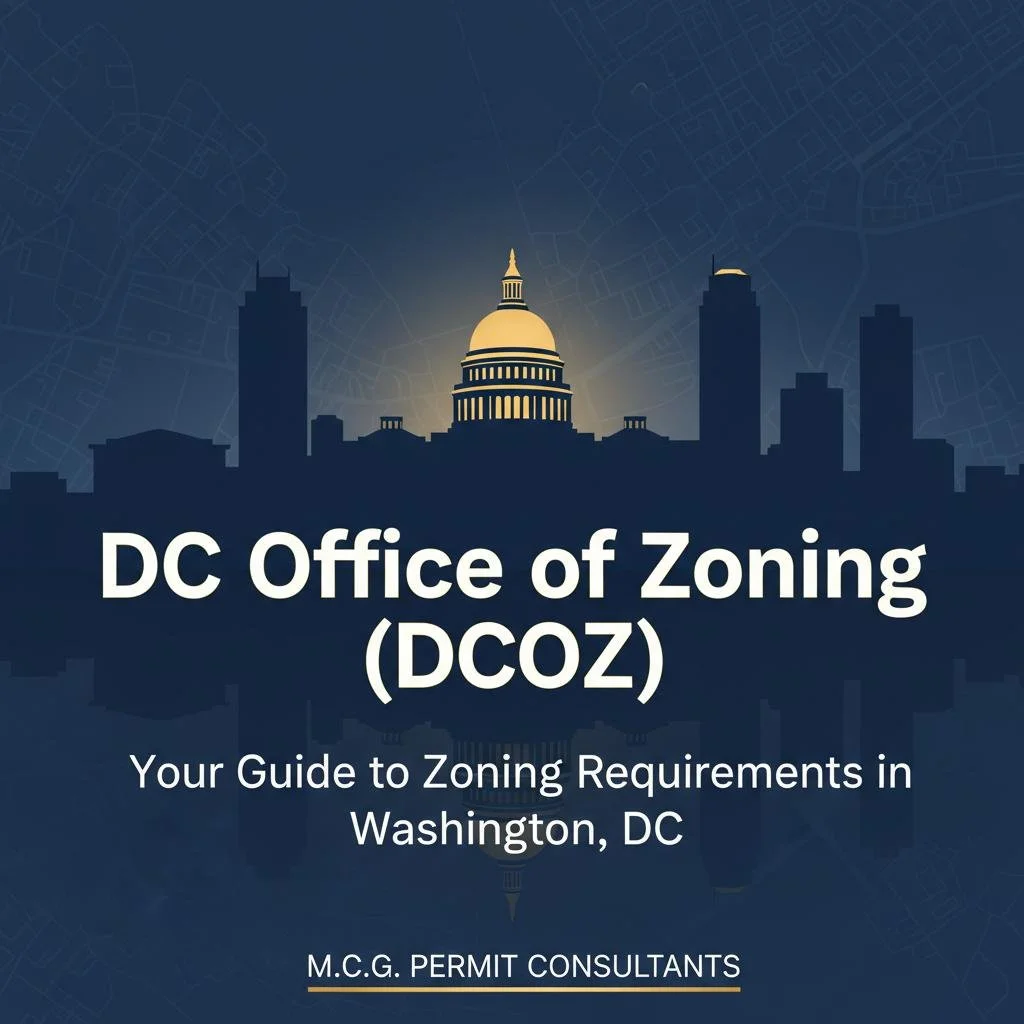Understanding DC's Office of Zoning (DCOZ): Your Guide to Navigating Zoning Requirements in Washington, DC
DC's Office of Zoning (DCOZ)
When embarking on any construction or development project in Washington, DC, understanding the role of the District of Columbia Office of Zoning (DCOZ) is crucial for project success. Whether you're a homeowner planning a renovation, a developer working on a commercial project, or a contractor navigating permit requirements, DCOZ plays a pivotal role in determining what you can and cannot build in the nation's capital.
What is the DC Office of Zoning (DCOZ)?
The DC Office of Zoning serves as the administrative arm of the Board of Zoning Adjustment (BZA) and provides support for zoning-related matters throughout the District. Established to ensure orderly development and land use planning, DCOZ is responsible for interpreting and enforcing the District's Zoning Regulations, which govern how land can be used and what types of structures can be built in different areas of the city.
Key Roles and Responsibilities of DCOZ
1. Zoning Administration and Interpretation
DCOZ interprets the District's Zoning Regulations and provides guidance on zoning requirements for various projects. This includes determining whether proposed developments comply with existing zoning laws and identifying when special permits or variances may be required.
2. Application Processing and Review
The office processes various types of zoning applications, including:
Special exception applications
Variance requests
Appeals of zoning administrator decisions
Planned Unit Development (PUD) applications
Map amendment requests
3. Public Notice and Community Engagement
DCOZ ensures proper public notification for zoning cases, manages community input processes, and facilitates public hearings. This transparency allows affected communities to participate in the decision-making process for developments in their neighborhoods.
4. Technical Support and Case Management
The office provides technical support to applicants, property owners, and their representatives throughout the zoning process. This includes case management, scheduling hearings, and coordinating with other District agencies.
Understanding Zoning Districts in DC
Washington, DC is divided into various zoning districts, each with specific regulations governing:
Residential Zones (R-1 through R-5): Single-family to high-density residential areas
Commercial Zones (C-1 through C-5): Neighborhood commercial to downtown commercial areas
Mixed-Use Zones (MU-1 through MU-25): Areas allowing both residential and commercial uses
Industrial Zones (PDR and M): Production, distribution, repair, and manufacturing areas
Special Purpose Zones: Including waterfront, campus, and institutional areas
Each zone has specific requirements for:
Building height and bulk
Lot occupancy limits
Setback requirements
Parking and loading provisions
Use restrictions
Common DCOZ Application Types
Special Exceptions
Required when a proposed use is permitted in a zone but needs special review due to potential impacts on the surrounding area. Common special exceptions include:
Home occupations in residential areas
Parking reductions
Rooftop structures exceeding height limits
Certain institutional uses
Variances
Granted when strict application of zoning regulations would cause undue hardship due to exceptional physical conditions of the property. Variances may be needed for:
Setback requirements
Lot occupancy limits
Height restrictions
Parking requirements
Appeals
Property owners can appeal decisions made by the Zoning Administrator if they believe an interpretation or application of zoning regulations is incorrect.
General Requirements for DCOZ Applications
Pre-Application Requirements
Before submitting any application to DCOZ, applicants should:
Conduct a thorough zoning analysis
Review applicable zoning regulations
Consult with DCOZ staff for preliminary guidance
Coordinate with other relevant District agencies
Application Components
Most DCOZ applications require:
Completed application forms
Detailed project plans and drawings
Zoning analysis and justification
Property survey
Proof of property ownership
Application fees
Public notice materials
Timeline Considerations
DCOZ cases typically follow these general timelines:
Application Review: 30-45 days for completeness review
Public Notice Period: 21-40 days depending on case type
Hearing Scheduling: 60-90 days from complete application
Decision Timeline: 30 days after hearing conclusion
The Relationship Between DCOZ and Building Permits
Understanding the relationship between zoning approval and building permits is crucial for project planning:
Zoning First: Most projects requiring DCOZ approval must obtain zoning relief before applying for building permits
Conditional Approval: Building permits may be issued conditionally pending final DCOZ approval in some cases
Compliance Verification: The Department of Buildings verifies zoning compliance during the permit review process
Working with DCOZ: Best Practices
Early Engagement
Schedule pre-application meetings with DCOZ staff
Attend community meetings early in the process
Coordinate with Advisory Neighborhood Commissions (ANCs)
Thorough Preparation
Ensure all application materials are complete and accurate
Provide clear, detailed project drawings
Include comprehensive zoning analysis
Community Outreach
Engage with neighbors and community groups
Address concerns proactively
Consider community input in project design
Professional Assistance
Consider working with experienced zoning attorneys
Engage qualified architects familiar with DC zoning
Utilize permit expediting services for complex cases
Common Challenges and How to Address Them
Incomplete Applications
Many applications face delays due to missing or inadequate information. Working with experienced professionals can help ensure completeness from the start.
Community Opposition
Strong community opposition can complicate the approval process. Early and genuine community engagement often helps address concerns before they become obstacles.
Regulatory Complexity
DC's zoning regulations are complex and frequently updated. Staying current with regulatory changes and working with knowledgeable professionals is essential.
The Impact of DCOZ Decisions on Project Timelines
DCOZ proceedings can significantly impact project timelines:
Simple cases may take 3-4 months
Complex cases can extend 6-12 months or longer
Appeals can add additional months to the process
Planning for these timelines early in project development is crucial for maintaining realistic schedules and budgets.
Recent Developments and Future Considerations
The DC zoning landscape continues to evolve with:
Ongoing zoning regulation updates
New sustainability requirements
Affordable housing initiatives
Transit-oriented development policies
Staying informed about these changes is essential for successful project planning.
Conclusion
The DC Office of Zoning plays a critical role in shaping development throughout the District. Understanding DCOZ's role, requirements, and processes is essential for anyone undertaking construction or development projects in Washington, DC. While navigating zoning requirements can be complex, proper preparation, early engagement, and professional guidance can help ensure successful outcomes.
Whether you're planning a simple home addition or a major commercial development, taking the time to understand and properly address zoning requirements through DCOZ will save time, money, and frustration in the long run. The investment in proper zoning compliance pays dividends throughout the entire development process and helps ensure your project contributes positively to the District's continued growth and development.
For assistance navigating DC's zoning requirements and permit processes, M.C.G. Permit Consultants offers expert guidance and expediting services. Contact us at (202) 729-8272 or visit www.mcgpermits.com for a free consultation.

